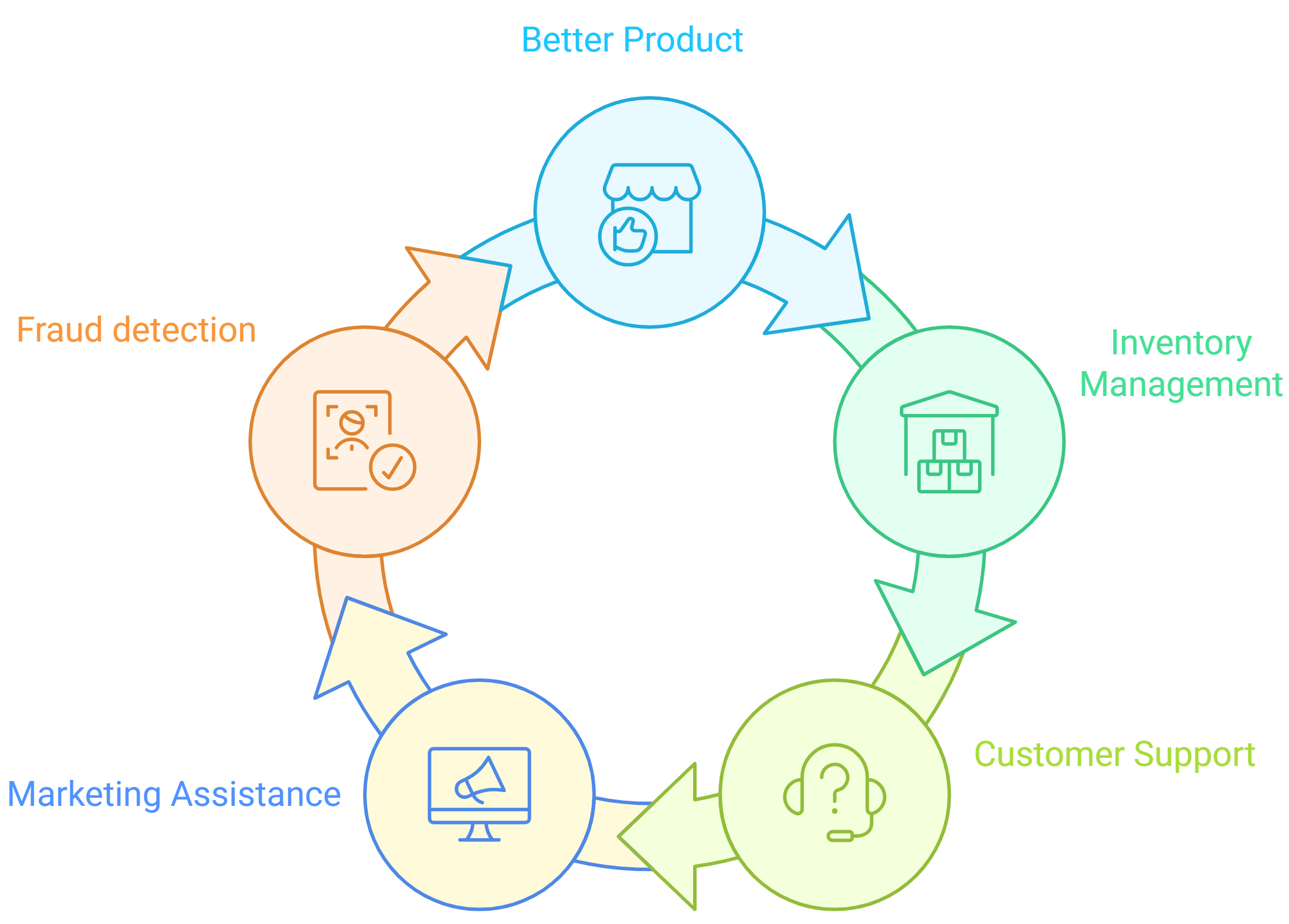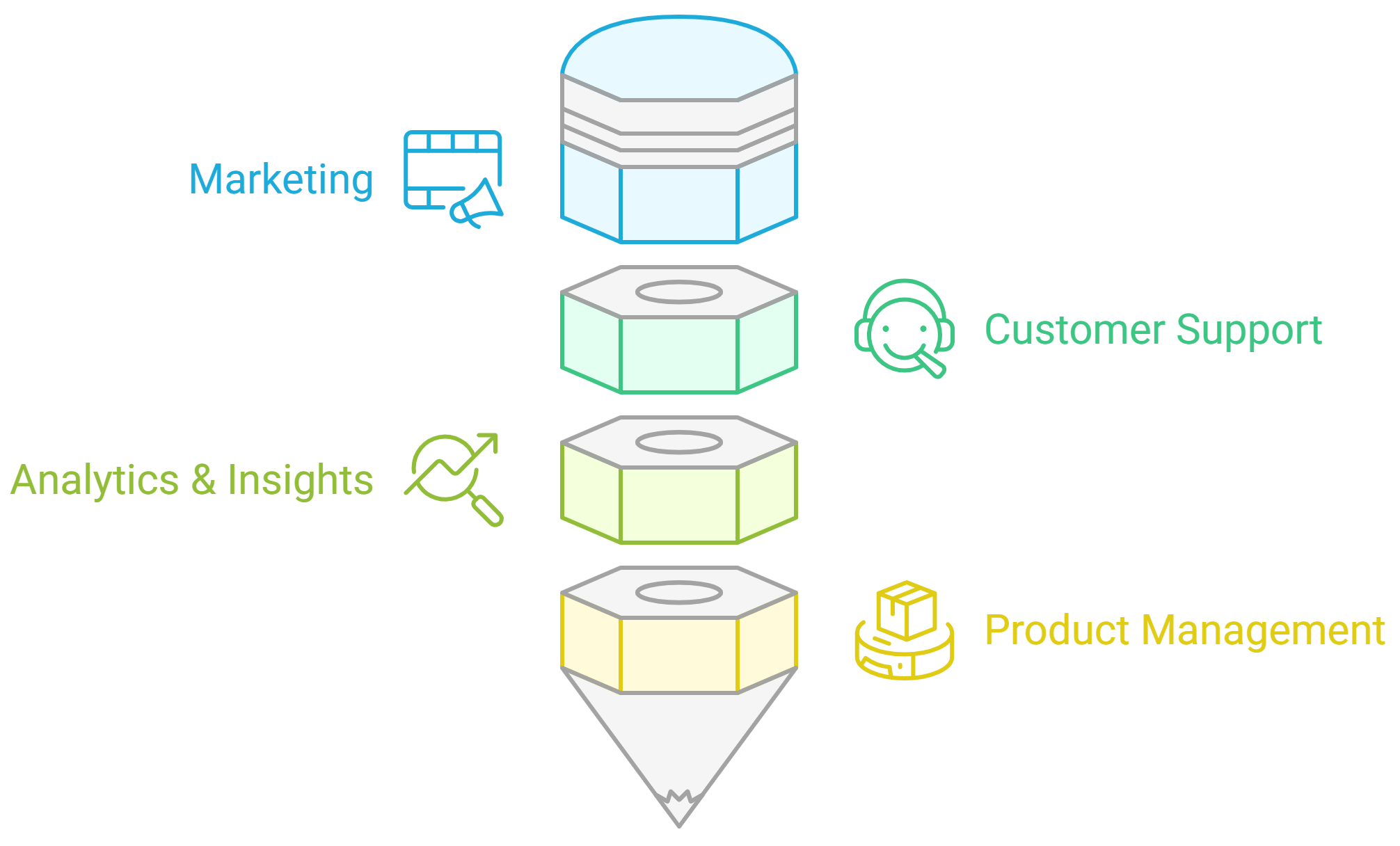E-commerce has changed a lot in the last few years. From how people discover products to how they make purchases, everything is getting smarter, faster, and more personalized. And one of the biggest reasons behind this shift is Artificial Intelligence (AI).
AI is transforming how we buy and sell online. It’s helping businesses understand customers better, predict what products will sell, and even talk to shoppers through chatbots. But here’s the truth: AI can’t do everything.
There are still areas where human creativity, strategy, and technical skills make all the difference.
So, let’s take a look at how AI is changing e-commerce, what it can really handle, and when you still need developers to step in.
The Rise of AI in E-commerce
AI isn’t just a buzzword anymore; it’s a major force in online shopping.
Think about it. The recommendations you get when you shop on Amazon, or how chatbots answer your questions instantly, that’s AI working behind the scenes. So why are so many online stores now using AI?
Because it saves time, reduces manual work, and improves the customer experience. With so many shoppers expecting fast, personalized service, AI helps e-commerce brands keep up.
AI is improving almost every part of the shopping experience:
- Chatbots handle customer questions day and night.
- Recommendation engines suggest products based on your browsing and buying habits.
- Dynamic pricing tools adjust prices automatically based on demand and competition.
How Can AI Help in the E-commerce Industry?
AI is not just a trend; it’s becoming a vital part of how e-commerce stores operate. It’s clear that AI is helping e-commerce businesses become more efficient and customer-friendly.
Here’s how it helps in different areas:

- Better product recommendations: AI studies user behavior, what they click, buy, or ignore, and suggests items that match their taste.
- Inventory management: It predicts which products will sell fast and when to restock, helping stores avoid overstocking or running out.
- Customer support: AI-powered chatbots like ChatGPT or Zendesk AI answer customer questions instantly and can handle thousands of queries at once.
- Marketing assistance: AI tools analyze data and help create targeted ads or email campaigns, improving ROI.
- Fraud detection: AI systems can identify suspicious payments or fake reviews, protecting businesses and customers from scams.
Does Shopify Have AI?
These tools are especially useful for beginners or small store owners who want to save time. But, and this is important, they have their limits.
AI can’t handle advanced customization, theme design changes, or coding-based tasks. When you need a unique layout, custom features, or integration with other apps, that’s where developers still come in.
If you’re using Shopify, you’ve probably heard of Shopify Magic and Shopify Sidekick, two of its built-in AI tools.
- Shopify Magic helps you write product descriptions, generate emails, and even create blog content.
- Shopify Sidekick acts like your personal assistant, helping with store setup, marketing tasks, and answering store management questions.
Can AI Build an E-commerce Website?
AI website builders are growing fast. Tools like Wix ADI or Shopify Magic can now create an entire online store in minutes. Sounds easy, right? It is, but it comes with trade-offs.

Here’s how they work:
- You answer a few questions about your business.
- The AI suggests a design layout, adds images, and writes basic text.
- You get a ready-to-edit website instantly.
The benefits:
AI builders save time, give you design ideas, and help you go live faster.
The limitations:
They offer less creative freedom, limited design flexibility, and often weaker SEO performance.
If you want a unique website that stands out, loads fast, and grows with your brand, you’ll still need developers to customize and optimize it.
When You Still Need Developers
AI is great at automating tasks, but when it comes to creativity and long-term growth, developers are still essential. A good way to think about it is this: “AI can build a store, but developers build an experience.”
Here’s when you’ll definitely need them:
- To build a custom design that reflects your brand identity.
- To add special features like advanced filters, custom checkout flows, or app integrations.
- To optimize website speed and performance.
- To maintain and update your website regularly for security and smooth functioning.
What is the Best AI for E-commerce?
When choosing an AI tool, always consider your budget, store size, and goals. A small store might benefit more from simple, affordable AI tools, while a large brand may need enterprise-level solutions.
There’s no single “best” AI; it depends on what you need. But here are some of the most popular tools across different categories:
Marketing:
- AdCreative.ai – Creates ad banners and social media visuals using data-driven insights.
- Jasper AI – Helps write blogs, product descriptions, and marketing copy.
Customer Support:

- ChatGPT – Great for building conversational chatbots or assisting customer service.
- Zendesk AI – Manages support tickets and automates responses.
Analytics & Insights:
- Google Cloud AI – Offers predictive analytics and customer behavior insights.
- IBM Watson – Helps with product recommendations and data analysis.
Product Management:
- Syte and ViSenze – Use image recognition to help customers find similar products visually.
Can AI Replace E-commerce Developers?
A question many people ask is, “Will AI replace developers?”
The short answer: No, not yet.
AI can handle repetitive tasks, suggest layouts, and even write bits of code. But it can’t think creatively, solve complex technical issues, or understand brand vision like humans can.
AI works best when it supports developers, not replaces them.
Together, they can build smarter, faster, and more personalized e-commerce experiences.
As one tech expert said, “AI won’t replace humans, but humans using AI will replace those who don’t.”
Which Platform Is Best for E-commerce?
There are many e-commerce platforms out there, each with its own strengths and AI features. If you’re starting, Shopify or Wix are great options.
If you’re scaling fast or want more control, WooCommerce or Magento might fit better.
- Shopify: Easiest for beginners, comes with Shopify Magic and Sidekick AI.
- WooCommerce: Flexible for WordPress users, with many AI plug-ins.
- Wix: Offers AI design tools for quick website creation.
- Squarespace: Simple and visually strong, ideal for small businesses.
- Magento (Adobe Commerce): Advanced and customizable, suited for large enterprises.
Summing Up
AI is changing e-commerce in big ways, from automating customer support to helping create smarter marketing campaigns. It’s saving time, improving accuracy, and giving customers more personalized experiences.
But even the smartest AI has limits. It can’t fully replace developers, creativity, or human judgment. Developers bring vision, customization, and the technical depth that AI still lacks.
In the end, the most successful online stores use Shopify AI and human expertise together. AI handles the data and automation. Developers shape the design and experience. And that’s how the future of e-commerce will keep evolving smarter, faster, and more human.

With a Bachelor’s in Commerce and 15 years of experience in Ecommerce SEO and Shopify Development, I bring extensive expertise to the digital field. As Managing Partner at WillShall Consulting, I lead a team delivering exceptional Digital Marketing, Web Development, and Web Designing services. My passion for innovation and commitment to excellence help businesses thrive in the digital age.





 Call Us
Call Us Email Us
Email Us Video Call
Video Call

 Our Locations
Our Locations